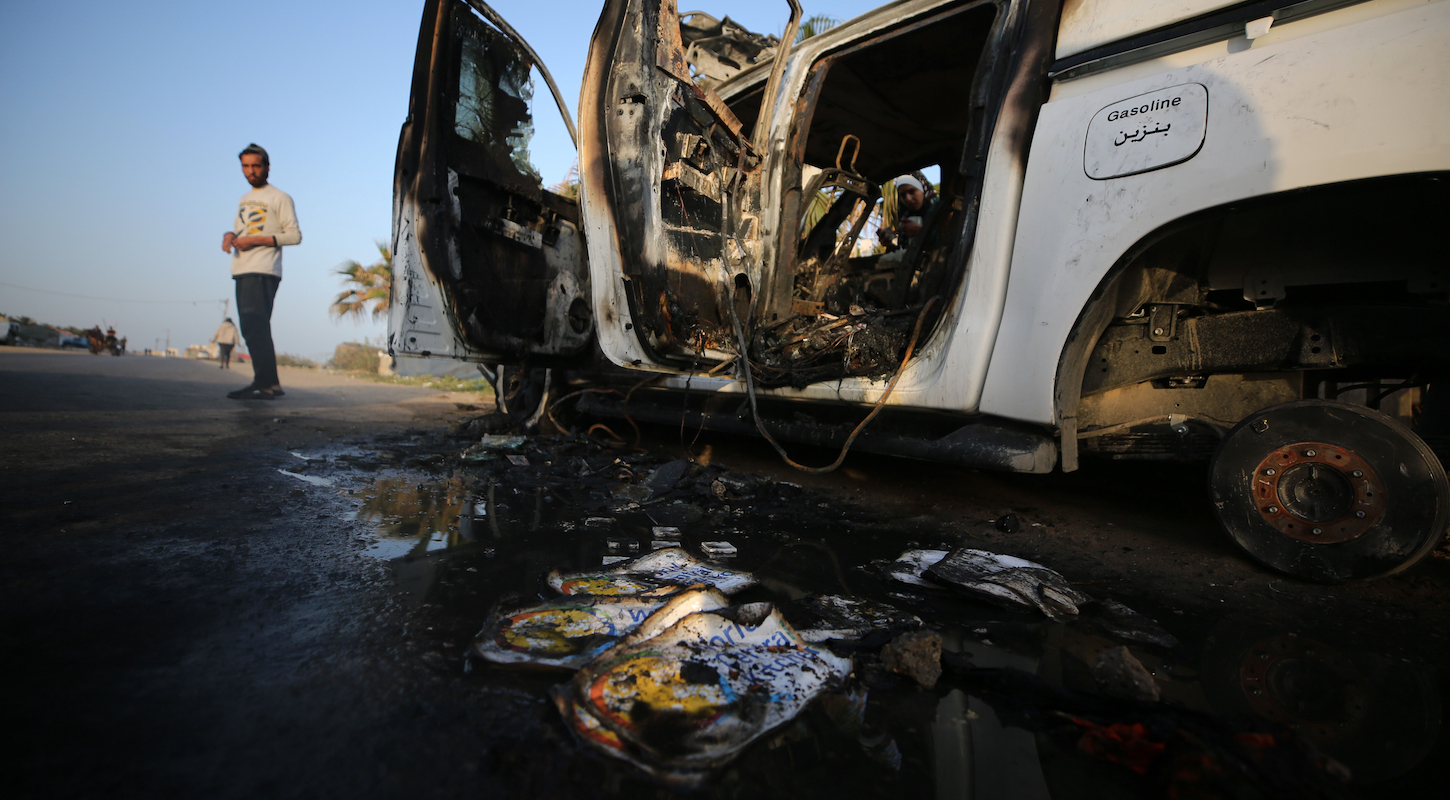Welcome to Margin of Error, a politics column from Tom Scocca, editor of the Indignity newsletter, examining the apocalyptic politics and coverage of Campaign 2024.
Tuesday was New York's primary election day, and I was trying to decide what kind of dispirited I was. My choices were to go out in the rain and cast a blank ballot in protest of Joe Biden's Gaza policy, or to stay home and do nothing. Or, as I thought about it more, I realized I could also go and cast a ballot for Joe Biden, affirmatively, to discourage the message that public opinion in any way called for Donald Trump or Robert F. Kennedy Jr. to be considered as an alternative.
There wasn't any way to vote for someone I believed in and agreed with, with the hope that my ballot might actually help that person become president, but that's been the case for more or less every primary election since I joined the electorate. We live in a huge country with many powerful, terrible interests at work, and the best you can generally hope for is to support the coalition of less terrible interests in choosing a winner against the side of pure cruelty and evil.
While I thought this over I was following the coverage of Israel's murder of the seven World Central Kitchen relief workers in Gaza. Now and then, it feels as if some atrocity from Gaza has to be so atrocious as to break through the complacency and resignation, and this one really seemed to be a contender: The relief convoy was fully labeled and had cleared its route with the Israeli authorities, and the Israel Defense Forces didn't just blow them up anyway, but viciously hunted them down—blowing up one car, then blowing up the car that rescued the survivors from the first car, then blowing up the car that rescued the survivors from the second, stretching out their victims' ordeal over the course of a mile until there were no survivors left for anyone else to try to rescue.
Along with the sense that some act of carnage and cruelty must represent some sort of limit goes the belief that there must be something the public can do about it. Whatever people signed on for last time, casting ballots for the less harmful option, it can't have been this, can it? And isn't there a point in the democratic process where you say so?
Meanwhile, we were selling even more weapons to the people who'd murdered the aid workers—the people who were intentionally starving the 2 million people to whom the aid workers were trying to bring some food—minus of course the tens of thousands of people already blasted and burned and crushed to death in their homes, or in their schools, or their hospitals, or their shelters, or in the streets fleeing from some other assault. The administration I'd voted to elect was working on a brand-new deal to sell F-15 fighter jets to the people doing the mass killing, but when I tried to look it up at first, what I got was a story about the earlier weapons transfer where we were sending them 2,000-pound bombs, the bombs that are specifically too big to use in places like Gaza without indiscriminately killing civilians.
The longer this goes on, the more I think about the protesters who chanted "Hey, hey, LBJ / How many kids did you kill today?" It was a perfect chant, cutting and morally true. It drew a line, and it caught Lyndon Johnson on the wrong side of it. Johnson chose not to face the voters again in 1968. And then, behind the scenes, Richard Nixon sabotaged the Paris peace talks and replaced Johnson as president.
And Richard Nixon killed a lot more kids, and other people, in the seven extra years he added to the war—killed them not just in Vietnam but in Cambodia and Laos, illegally expanding the war without telling the public or getting permission from Congress. Along the way, he ended the draft, buying out the antiwar movement and severing the ties between military empire and civilian life. Future wars, or military activities that killed people, would be professional affairs, unburdened by oversight or consent.
In Gaza, the United States isn't even fighting the war, merely keeping the weapons flowing. It's an industry, and we're the global leader. Nobody really put that on the ballot either, except that weapons-manufacturing jobs are jobs, and promoting jobs gets people reelected.
I left my ballot where it was. The new neighborhood polling place is much less convenient than the old one was. Someday, maybe, we'll learn exactly what weapons system the Israelis killed the aid workers with, and perhaps even who made it. This wasn't an accident, after all, but the endpoint of a series of knowable decisions and actions. Everyone did their part.
Why do the World Central Kitchen workers matter so much, next to all the other dead people in Gaza? There are easy answers, unflattering but not untrue, about which lives matter more in our press and our politics, and which lives matter less—certainly, if six out of seven people in Gaza, say 1.9 million of them, were citizens of assorted European or Anglophone nations rather than Palestinians, the United States would not have been so complacent for so long about a barrage of 2,000-pound bombs landing on them. But there's another impulse behind it, too. The aid workers got into those cars, under the lethal eye of the IDF, because they were attempting to make a difference in Gaza. This is what happens if you try to change things.






